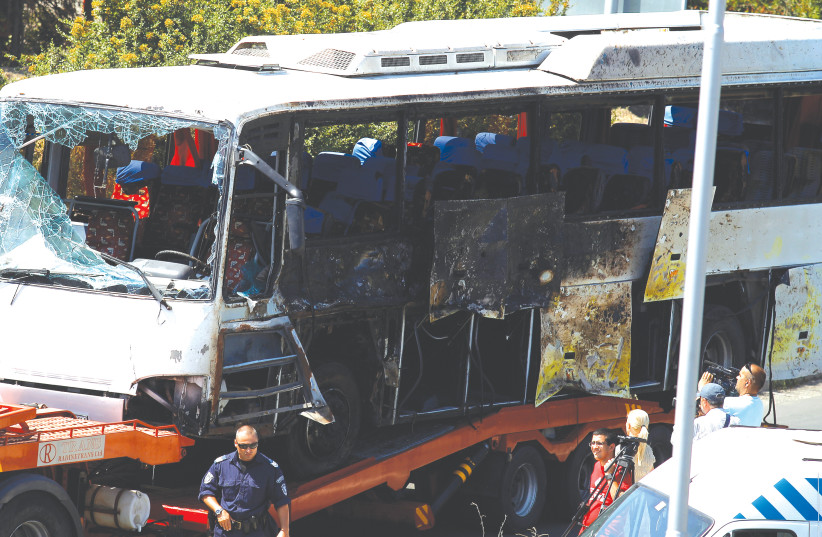Today, July 18, marks twelve years since the Burgas bus bombing, a terrorist attack at Sarafovo Airport in Bulgaria that killed five Israelis and one Bulgarian while injuring 32 more Israelis.
The attack, a targeted suicide bombing attack on a bus carrying 42 Israelis, was believed to have been carried out by Hezbollah terrorists.
On July 18, 2012, at 5:23 pm, 23-year-old Franco-Lebanese national Mohamad Hassan El-Husseini detonated an explosive device on a passenger bus transporting Israeli tourists from the airport to their hotels in the seaside resort town of Burgas.
The explosion, identified in 2020 to have been an ammonium nitrate-based explosive, resulted in the deaths of five Israelis, including a pregnant woman as well as the Bulgarian bus driver. El-Husseini, who had entered Bulgaria using the alias Jacques Felipe Martin, also died in the blast.
The attack’s victims were Yitzhak Kolangi, 28, of Petah Tikva; Maor Harush, 26, of Acre, Amir Menashe, 27, of Petah Tikva, Elior Preis, 26, of Acre, and Kochava Shriki, 44, of Rishon Lezion, who was also pregnant. The bus driver was Mustafa Kyosov, 36, a Muslim from the village of Yurukovo in southwestern Bulgaria.

A year after the attack, Bulgarian authorities, supported by forensic evidence and intelligence from Europol, stated that Hezbollah operatives were behind the attack—the deadliest against Israelis abroad since 2004. This led to international condemnation and the European Union’s decision to list Hezbollah’s military wing as a terrorist organization in 2013. Both Hezbollah and Iran deny any involvement in the attack.
Terrorism charges for fugitives
In 2020, the Supreme Court in Bulgaria sentenced two of the attack’s accomplices, convicted Hezbollah terrorists, to life in prison and formally confirmed that they believed Hezbollah had carried out the terrorist attack. Authorities stated that Meliad Farah, a Lebanese-Australian, and Hassan El Hajj Hassan, a Lebanese-Canadian, entered Bulgaria along with El-Husseini the month before the attack using forged ID documents and fled to Lebanon the evening after. They were tried in absentia and charged with terrorism but remain on Interpol’s most wanted list, their whereabouts remain unknown.
Despite substantial evidence implicating Hezbollah, Bulgaria never officially charged the terrorist group with the 2012 bus bombing, as revealed by The Jerusalem Post in an exclusive 2018 report. Instead, the prosecution indicted the two men allegedly involved in the attack as if they were independent terrorists or ordinary criminals, with no mention of Hezbollah in the indictment.
Initially, Bulgarian prosecutors claimed they lacked evidence linking the suspects to Hezbollah. However, on September 17, 2020, after the trial concluded but before sentencing, the prosecutor disclosed significant evidence connecting Hezbollah to the attack.
The prosecutor detailed this evidence in the court record. Still, since the convictions had already been decided, the court stated it could not reopen the case to charge Hezbollah or add terrorism charges.
Benjamin Weinthal and Aaron Reich contributed to this report.
